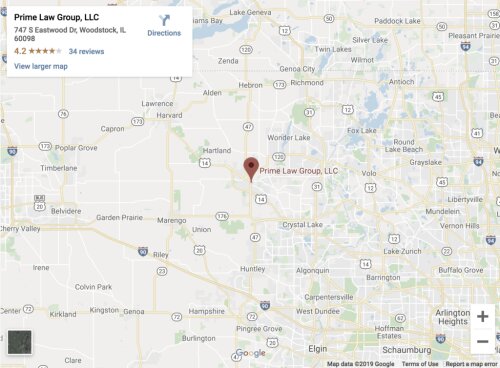Best Health Care Lawyers in Alabama
Share your needs with us, get contacted by law firms.
Free. Takes 2 min.
Or refine your search by selecting a city:
List of the best lawyers in Alabama, United States
About Health Care Law in Alabama, United States
Health care law in Alabama covers a wide range of legal issues related to the provision, regulation, and access to health care services within the state. Alabama follows both federal and state regulations that govern health care facilities, practitioners, insurance, patient rights, privacy, and public health initiatives. The law affects individuals, families, providers, and insurers, ensuring that health care is delivered according to legal standards of safety, privacy, and fairness. If you live in Alabama or operate a health care business, it is important to understand your rights, obligations, and options under state and federal health care laws.
Why You May Need a Lawyer
Legal guidance can be crucial in many health care situations. People may need a health care lawyer in Alabama if they are facing denied insurance claims, disputes over medical bills, or concerns about the quality of medical care received. Other common scenarios include navigating Medicaid or Medicare eligibility or appeals, resolving issues related to medical malpractice, or dealing with legal matters involving elder care, mental health services, or advanced health directives. Health care providers and facilities often need legal assistance to maintain compliance with complex regulations and to respond to investigations or audits by state or federal agencies.
Local Laws Overview
Several key aspects of Alabama law are particularly relevant to health care. The state has its own regulations on the licensing and operations of hospitals, clinics, nursing homes, and other facilities. Alabama law governs patient consent, the privacy and security of medical records, and the rights of patients regarding their health information. The Alabama Medicaid Agency administers state-funded health insurance programs, while the Alabama Department of Public Health oversees public health initiatives, including mandatory reporting of communicable diseases. Alabama has a statute of limitations for filing medical malpractice lawsuits, and specific regulations about living wills, durable powers of attorney for health care, and end-of-life care decisions.
Frequently Asked Questions
What is the statute of limitations for medical malpractice in Alabama?
In Alabama, you generally have two years from the date of the alleged malpractice to file a lawsuit. Some exceptions may apply if the injury was not discovered right away, but timing is critical. Always consult with an attorney as soon as possible.
Does Alabama have its own patient privacy laws?
Yes. In addition to federal regulations such as HIPAA, Alabama laws also protect the confidentiality of medical records and specify how records can be released to patients or third parties.
Can I refuse medical treatment in Alabama?
Adults in Alabama have the right to refuse or discontinue medical treatment, including life-sustaining interventions. Having a living will or an advanced directive can make your preferences clear.
How does Medicaid work in Alabama?
Medicaid provides health coverage for eligible low-income individuals and families. The Alabama Medicaid Agency handles applications, eligibility determination, and the administration of benefits.
What should I do if my health insurance claim is denied?
You have the right to appeal a denied claim. Start by reviewing the denial notice and your policy, then follow the insurance company's appeal process. If necessary, contact the Alabama Department of Insurance or consult a health care attorney.
Are there laws about mental health care in Alabama?
Yes. Alabama law requires parity between mental health and physical health coverage for many insurance plans. The state also regulates involuntary commitment and protects the rights of patients in mental health facilities.
How are nursing homes regulated in Alabama?
Nursing homes must follow regulations set by the Alabama Department of Public Health and federal standards for safety, staffing, and patient care. Complaints about care can be filed with the state's Long-Term Care Ombudsman Program.
What are my rights as a patient in Alabama?
You have numerous rights, including the right to informed consent, privacy of your medical information, access to your medical records, and the ability to refuse treatment.
How do I create a health care power of attorney or living will in Alabama?
Alabama provides standard forms for living wills and powers of attorney for health care decisions. These documents must be signed and dated in the presence of two witnesses who are not related to you by blood or marriage.
Who oversees health care providers in Alabama?
Several agencies regulate health care providers. The Alabama Board of Medical Examiners handles licensing for medical professionals, while the Alabama Department of Public Health oversees facilities and public health standards.
Additional Resources
If you need more information or assistance, consider the following resources:
- Alabama Department of Public Health
- Alabama Medicaid Agency
- Alabama Department of Insurance
- Alabama Long-Term Care Ombudsman Program
- Alabama State Bar Lawyer Referral Service
- Local legal aid organizations
- National organizations such as the Centers for Medicare & Medicaid Services
Next Steps
If you believe you need legal assistance with a health care issue in Alabama, start by documenting all relevant information and gathering any paperwork related to your case. Consider consulting with a licensed attorney who specializes in health care law. The Alabama State Bar offers a lawyer referral service to help you find qualified legal professionals in your area. Regardless of your situation, do not delay seeking legal advice, as timelines for appeals, claims, and lawsuits can be strict. Legal guidance can help you understand your rights and options, supporting your health and peace of mind.
Lawzana helps you find the best lawyers and law firms in Alabama through a curated and pre-screened list of qualified legal professionals. Our platform offers rankings and detailed profiles of attorneys and law firms, allowing you to compare based on practice areas, including Health Care, experience, and client feedback.
Each profile includes a description of the firm's areas of practice, client reviews, team members and partners, year of establishment, spoken languages, office locations, contact information, social media presence, and any published articles or resources. Most firms on our platform speak English and are experienced in both local and international legal matters.
Get a quote from top-rated law firms in Alabama, United States — quickly, securely, and without unnecessary hassle.
Disclaimer:
The information provided on this page is for general informational purposes only and does not constitute legal advice. While we strive to ensure the accuracy and relevance of the content, legal information may change over time, and interpretations of the law can vary. You should always consult with a qualified legal professional for advice specific to your situation.
We disclaim all liability for actions taken or not taken based on the content of this page. If you believe any information is incorrect or outdated, please contact us, and we will review and update it where appropriate.
Browse health care law firms by city in Alabama
Refine your search by selecting a city.













